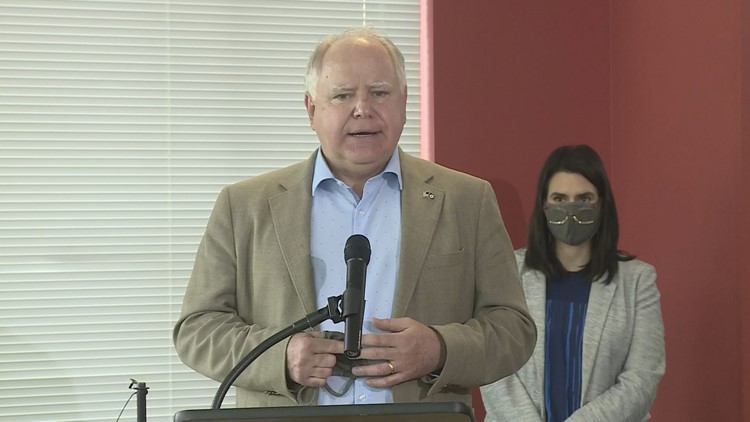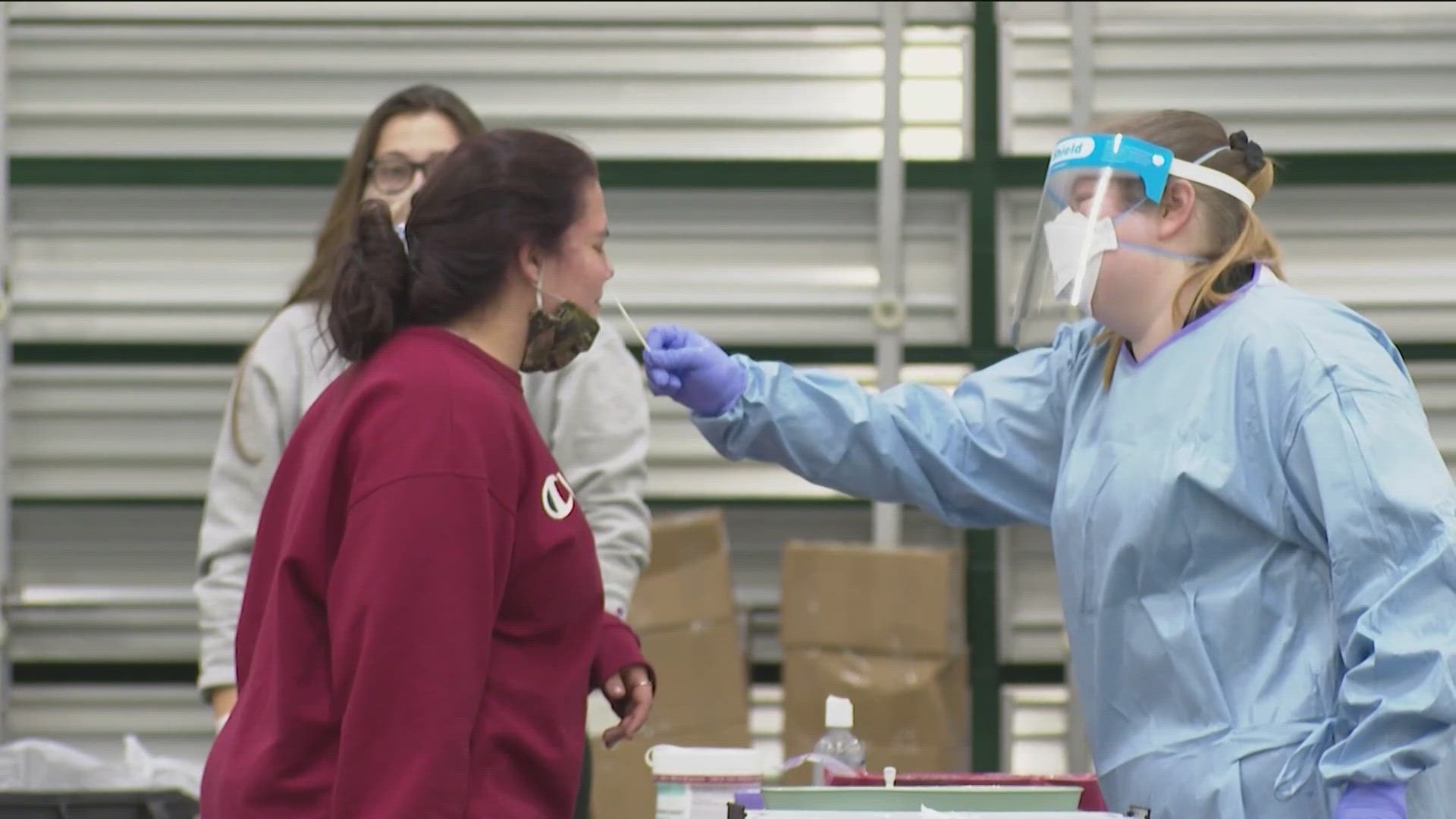MINNEAPOLIS — Gov. Tim Walz is announcing a plan to address housing and homelessness issues exacerbated by the COVID-19 pandemic.
Walz and Lt. Gov. Peggy Flanagan held a 2 p.m. news conference Tuesday at West Broadway Crescent Apartments in Minneapolis, to announce $100 million in funding for rental and mortgage assistance.
The governor said that the funding is designed to kick in and help people pay their Sept. 1 rent. That's the first rent check that will be due after the loss of the $600 per week in federal funding that's been added onto Minnesotans' unemployment benefits.
According to a news release from Walz, local grant administrators will be selected in the coming weeks, and Minnesotans should be able to start applying for assistance in the first part of August. More information can be found on the Minnesota Housing website at www.mnhousing.gov.
Dr. Thomas Adams, executive vice president of Housing & Services at CommonBond Communities, said that West Broadway Crescent Apartments house an intergenerational community, including many working families who have been "significantly impacted by COVID-19."
"Across the United States on the first of every month, rent is due regardless of loss of job, regardless of increased medical bills, regardless of a global pandemic or a national recession," Adams said.
Walz said Tuesday that affordable housing was already "under threat" in Minnesota before COVID-19 and the civil unrest surrounding George Floyd's death, and that now it feels like "one step forward and four steps back."
"That makes it very, very difficult for people to have any stability, that makes it very, very difficult for children to learn, if they don’t have a home," he said. "It makes it very, very difficult for people to practice social distancing."
The $100 million is the single biggest designation from the federal CARES COVID-19 relief funds for Minnesota, Walz said, and is coupled with $26 million that was already designated for emergency homeless help.
Adams said that many of their families need to choose between paying rent and buying food, or buying food and paying for medicine.
"We have more than 140,000 households making less than $50,000 per year, paying more than half their income toward rent, and that just isn’t sustainable," Flanagan said.
Housing issues have taken center stage in Minneapolis in recent weeks as people experiencing homelessness have set up tent encampments in several city parks. The Minneapolis Park and Recreation Board (MPRB) had initially said the parks would be refuges for the homeless. They then considered a plan to make many people move, but tabled that vote on July 1.
As the city of Minneapolis works to revise its 2020 budget to make up for revenue loss from both the pandemic and the civil unrest following George Floyd's death in Minneapolis police custody, Mayor Jacob Frey has emphasized his commitment to preserving affordable housing investments.
Frey pointed out last week that the pandemic and the unrest have both hit communities of color disproportionately harder than white Minnesotans.
"This is no time to abandon our commitments to racial justice and equity," he said.
The Minnesota Department of Health (MDH) has prioritized COVID-19 testing for people experiencing homelessness, and has been collecting data on how many cases have been linked to people who are either completely homeless, or in a shelter. As of Tuesday that number was 193.
State officials have expressed concern that both people who are unsheltered, and people in homeless shelters are at "significant risk" for coronavirus exposure, and don't have a safe place to self-isolate or practice social distancing.



